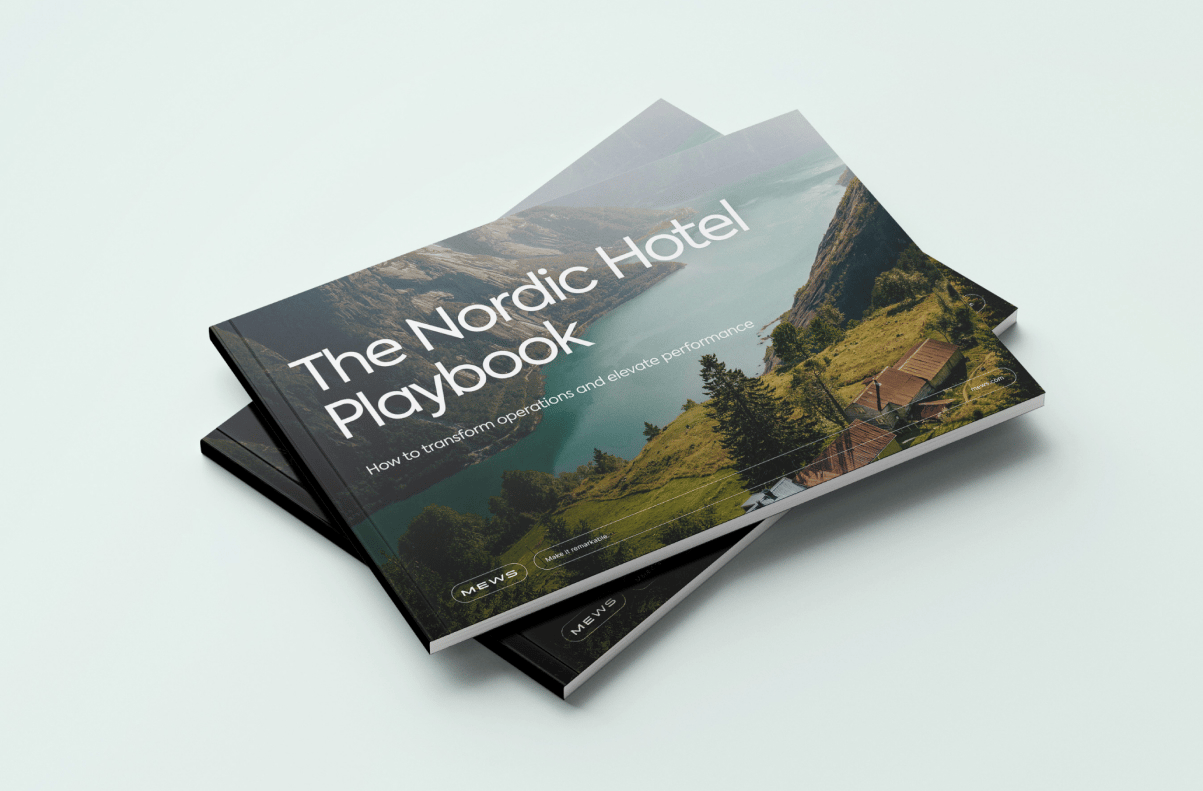Table of contents
Hotel organizational culture is perhaps one of the most underrated aspects of a hotel’s success. There’s a kind of magic in working together under a shared set of values and expectations, aiming to create remarkable guest experiences.
Trust and collaboration create an enjoyable environment where guests and staff want to spend their time. We’ll explore the importance of organizational culture and give you some winning tips for creating it – from training staff to encouraging open communication to offering benefits to your employees.
| Table of contents |
What is organizational culture and why is it important in hotels?
Culture stems from shared values, behaviors, ideas and customs. When people work together, organizational culture develops. Synchronized beliefs become a collective mindset that affects the overall guest experience.
Your staff represent your hotel. They mirror its personality and belief system, showing what it's like from the inside out. Every time guests interact with someone from your team, they get a clearer idea of your business. So, by taking care of your organizational culture, you're also defining what kind of establishment you want to be.

How to create the perfect organizational culture in hotels?
Creating your organizational structure starts with developing a set of brand values, a tone of voice and a transparent identity.
Provide training
There's nothing like training your staff to educate them in service and what it means to be guest centric. Everyone from housekeeping to the hotel manager should understand your hotel's values and mission.
Aligning staff with values and practices will go a long way, as everyone will feel like they play a role in ensuring the hotel's success. And the more implicated they feel in working towards a common goal, the harder they'll try. Encourage your staff to attend conferences or sign up for courses – continuous development makes for better employees.
Prioritize communication
Communication is an essential part of a company culture. Besides keeping everyone informed, it's an excellent employee engagement strategy. Good staff communication is how you create a healthy organizational culture, so don't skip team meetings and share internal news.
Give your staff access to internal communication channels. This way, nothing slips under the radar, and everyone knows what's happening in the hotel. If there's an unhappy guest, everyone's informed. Then, they can work together to address the issue and turn a negative experience into a positive one.
Co-create a vision
As the hotel owner or CEO, you have clear strategic objectives, such as reaching specific financial goals. You know you need to sell X number of rooms and have a Y average daily spend. How you reach those goals is part of a larger vision that you can co-create with your staff. After all, they'll be helping you reach those strategic goals.
Creating a vision requires working together to find the best way to reach your goals. Organize internal workshops and get input from staff. Encourage stakeholders to share and define what your brand stands for and where it's headed. This collaborative approach makes the brand's vision more authentic and meaningful for everyone.
 Personify your vision
Personify your vision
There are a lot of moving parts in creating a vision. Personifying it is crucial in a human-oriented industry. Just like a buyer persona helps you tailor your marketing efforts; a brand persona curates your vision. You can give your brand human characteristics such as “friendly”, “empathetic” or “attentive.” Assign that persona a name and a set of values.
This fun activity will make your hotel organizational culture more dynamic and inclusive. Personifying the brand makes it easier for everyone to uphold the values because they feel more tangible and real. It's an essential part of building a hotel brand strategy.
Give benefits
Perks and rewards create happy employees, so invest in their well-being by offering gym passes, extra days off, or bonuses. Salaries tend to be comparable across the hospitality sector, but benefits and perks are what can help your hotel stand apart and attract highly qualified employees.
You can also give rewards based on job performance. By effectively using perks, you can help create a positive, vibrant and productive work environment aligned with your hotel's mission and values.
Conclusion
We've looked at hotel organizational culture and top tips for creating a healthy and thriving hospitality environment. Your goal is to have a team that treats guests as friends and runs the hotel as if they were owners.
The stronger your culture, the easier you'll reach your bottom line. Everyone on the team should work towards a common goal – creating positive experiences that lead to repeat visits and guest loyalty.
Download our guide "Empower Your Teams"


Author
Eva Lacalle
Eva has over a decade of international experience in marketing, communication, events and digital marketing. When she's not at work, she's probably surfing, dancing, or exploring the world.
Hospitality hot takes straight to your inbox
Sign up to our monthly newsletter for industry insights, product news, partner updates and more.

The Nordic Hotel Playbook
Download now


.webp)